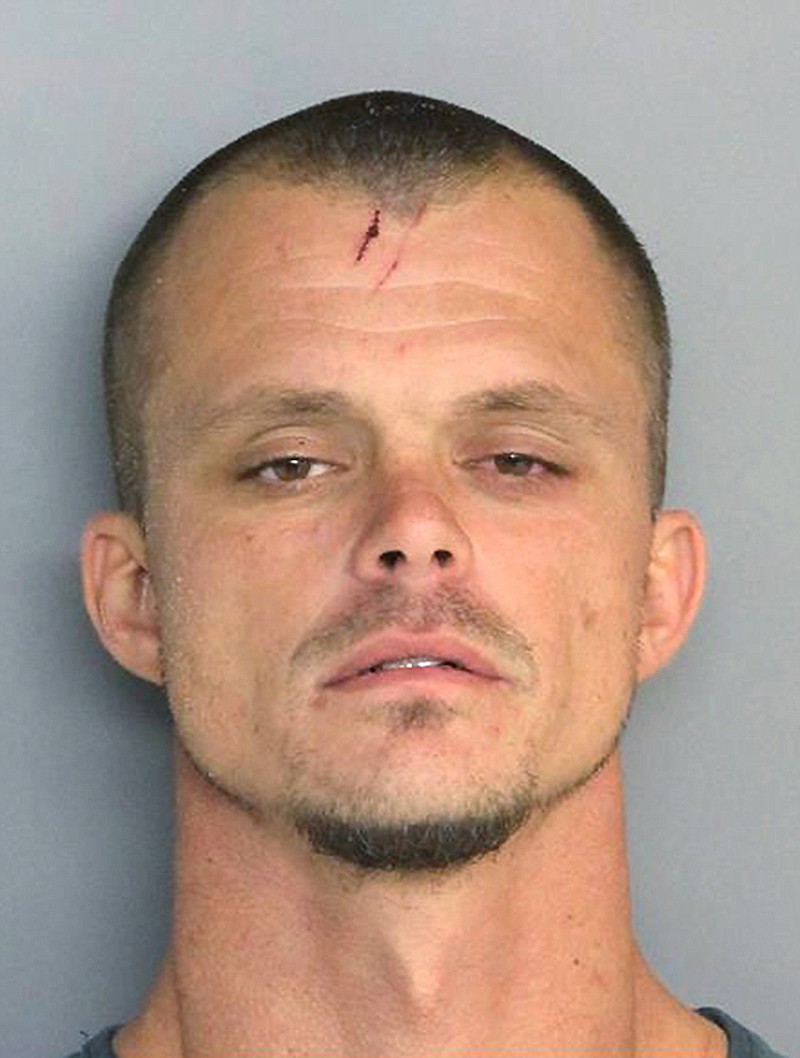ATLANTA (AP) - A man accused of killing a Florida priest who had tried to help him for months said he has reached a deal with prosecutors to plead guilty and avoid the death penalty.
Steven Murray faces charges including murder in the April 2016 shooting death of the Rev. Rene Robert, a senior priest for the Diocese of St. Augustine in northeast Florida. Murray told The Associated Press in a call from jail Tuesday evening that he plans to plead guilty at an Oct. 18 hearing in exchange for a sentence of life in prison without the possibility of parole.
"It's a lot of time, but I deserve it. Father Rene was a good man," Murray told AP.
Augusta Judicial Circuit District Attorney Natalie Paine confirmed in an email Wednesday that Murray has a hearing on Oct. 18 but said she couldn't comment on it.
Adam Levin, an attorney for Murray, said by email that he also couldn't comment.
Murray, who was 28 at the time of Robert's death, was a repeat offender whom Robert had been trying to help for months. Police said Murray asked the 71-year-old priest for a ride in Jacksonville, Florida, and then kidnapped him and killed him in Georgia. Murray was arrested in Aiken, South Carolina, after a multistate manhunt, and he led police to Robert's body in the woods near Waynesboro, Georgia.
The motive for the killing isn't entirely clear.
Murray told the St. Augustine Record for a story published in July 2016 that he had Robert in the trunk of the car in South Carolina and realized he could get in big trouble if Robert ever reported him.
"I just (expletive) freaked out and I killed him," Murray told the newspaper in an interview from jail.
Speaking more generally, Murray has told AP that he suffers from mental health issues and wanted to cause pain because of hurt he had suffered in his life.
Authorities have said Murray has twice attempted to kill himself in jail since his arrest.
Murray expressed both sorrow and defiance in public statements as he was taken from the courthouse after hearings last year. In postcards and calls to AP from jail, he has repeatedly said he cries over Robert's death and that he is sorry.
"My apologies go out to the family and friends of Father Rene," he said Tuesday. "I hope with time they can get some closure."
Murray has said that his father abused him badly while he was growing up in South Carolina. His sister, Bobbie Jean Murray, told AP that the abuse led Murray to drugs and crime at an early age.
He met Robert through a girlfriend, Ashley Shreve. The couple did drugs together, and Robert often gave them money, against their families' wishes.
Robert's colleagues have said he was devoted to helping the poor, often scraping leftovers from plates into baggies to give to the homeless. He also had great compassion for addicts, sometimes going so far as to lend them his car while he walked home alone through dangerous neighborhoods.
Because he devoted his life to helping society's most troubled, he was also aware that he could become a victim of violence. More than two decades before his death, he signed a "Declaration of Life," calling for his killer to be spared execution in the event of his murder.
That did not sway prosecutors, who have said their decision to seek the death penalty was based on the aggravated nature of the slaying.
